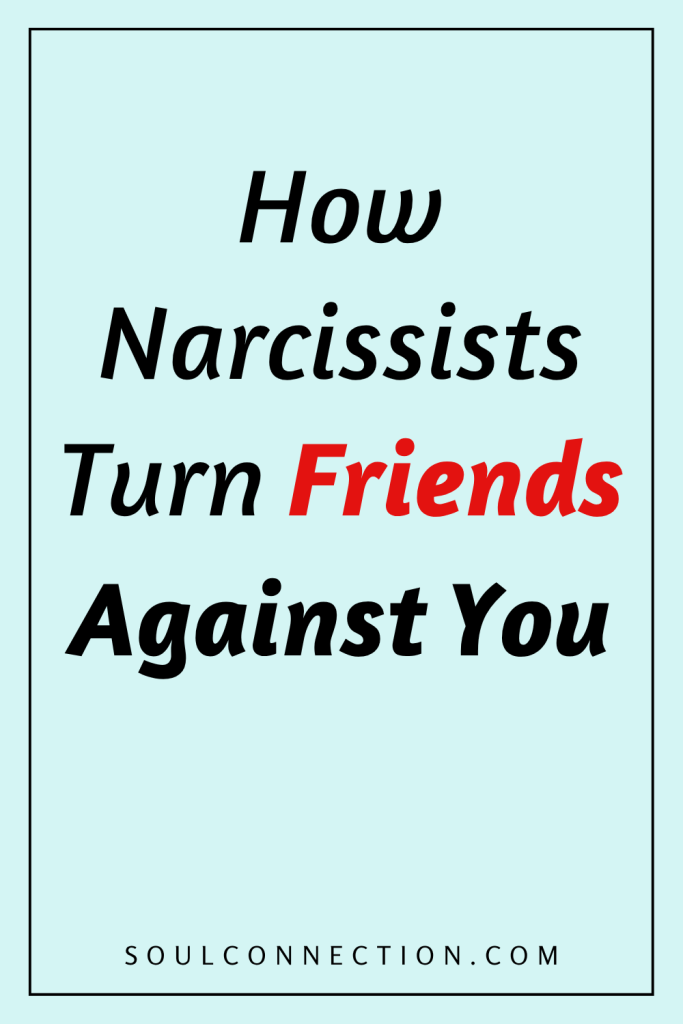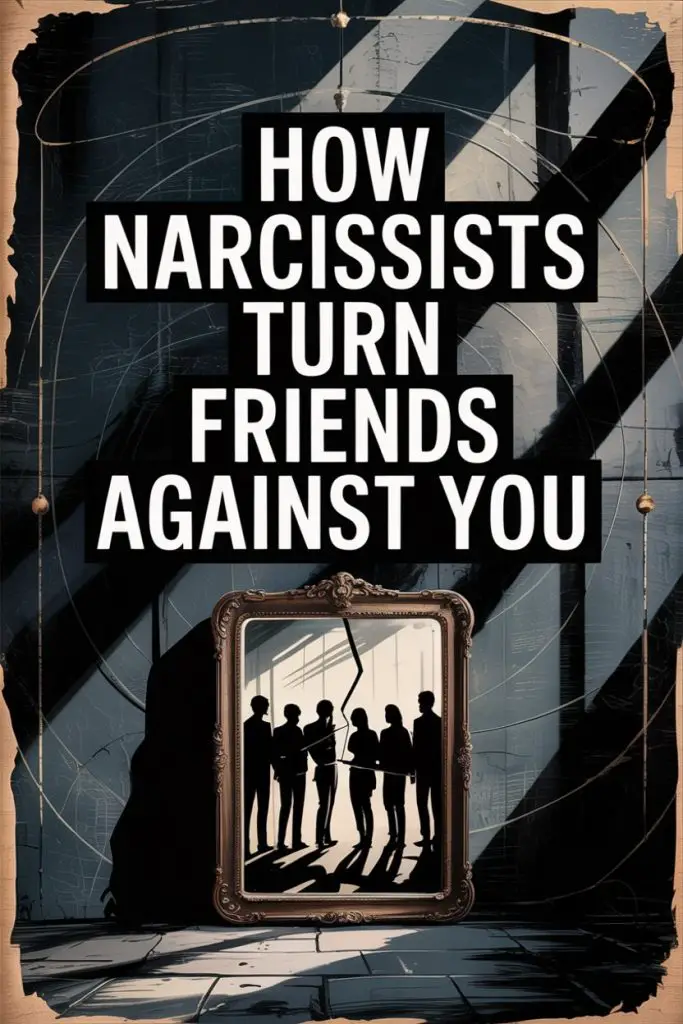Ever watched a group chat go from friendly banter to a virtual colosseum and wondered how your name ended up on the chopping block? If so, you might have a narcissist working their magic behind the scenes.
Narcissists aren’t just content to star in their own drama—they like to draft everyone else into the cast, too. When it comes to turning friends against you, their skills could impress even the pettiest soap opera villain.
Grab a cup of your preferred emotional-support beverage and let’s untangle how these charmers orchestrate social chaos, why their tactics work, and what you can actually do to stop feeling like a contestant in a very unwelcome reality show.
Charm Offensive at the Starting Gate
It always starts off charming, doesn’t it? Narcissists know how to dial up the charisma until everyone’s blinded by the sparkle. They’ll shower you with attention, compliments, and inside jokes—like a golden retriever after a Red Bull.
People around you get pulled in, too.
Friends see the narcissist as the fun, dazzling new addition to the group. They laugh at their jokes, bond over stories, and before you know it, there’s a new gravitational center in your social solar system.
Don’t mistake this for genuine friendship, though. It’s all part of the playbook. Narcissists collect allies the way toddlers hoard shiny objects—because those allies will come in handy later.
Planting the Seeds of Doubt
Once the narcissist has everyone eating out of their hand, it’s time for Act Two: subtle sabotage. Think of this as Mean Girls for grownups, minus the pink dress code.
The narcissist starts gently, usually with innocent-seeming questions or “concerns.” “Is she okay? She seemed kind of off at dinner.” Or, “I’m worried about him—he’s been really distant.” Said with a furrowed brow, of course.
This works because it doesn’t sound like backstabbing—it sounds like concern. Friends start looking at you sideways.
Did you actually act weird? Are you being distant? Cue the self-doubt spiral.
What’s better than a little seed of doubt? Watching it grow, apparently.
Twisting the Narrative
Ever told a story, only for it to come back to you in a bizarre, unrecognizable form? That’s a narcissist’s specialty: twisting the narrative until you look like the villain in your own sitcom.
They’ll exaggerate your flaws, invent slights, or spin neutral events into absolute betrayals.
“She yelled at me for being five minutes late”—when reality was more like, “You texted, ‘Running late?’ and she replied, ‘No worries.’”
Friends hear these tales enough, they start to believe them. After all, the narcissist is so convincing, so emotional, so—gulp—believable.
Suddenly, you’re cast as the difficult one, and nobody remembers how the story even began.
Splitting and Triangulation
Narcissists love a good triangle (and not the musical kind). Triangulation is their way of creating rifts—pitting people against each other, dropping hints, and then feasting on the drama.
Maybe they tell you what your other friend “really thinks” of you (spoiler: it’s never anything good). Or they tell your friend that you’re annoyed with them, or that you’re not as invested in the friendship.
Each side hears half-truths or straight-up lies.
The group divides, and the narcissist sits comfortably in the middle, the puppet master with a smile.
Isolating the Target
With alliances shifting and confusion reigning, it’s easy to start feeling isolated. That’s the point.
The narcissist chips away at your support system until you question your own reality. “Maybe I am the problem.” Friends withdraw, conversations get awkward, invites dry up.
Suddenly, you’re not just outside the group chat—you’re outside the group.
Isolation isn’t just collateral damage here. It’s the goal. An isolated target is easier to control, easier to gaslight, and much less likely to be believed if you raise the alarm.
Mastering the Art of the Victim
Now comes the pièce de résistance: the narcissist plays the victim.
“After everything I’ve done for them, they’re turning everyone against me!” (Insert teary sigh for dramatic effect.)
They’ll recount stories of your “cruelty,” exaggerating every rough edge until your mutual friends are ready to form a support group—without you, of course.
Nobody wants to be the bad guy, so people rally around the person who seems most wounded.
You get painted as the villain, the narcissist becomes the martyr, and the social script is flipped.
Weaponizing Private Confidences
Ever confided in someone, only to have your words show up in a group text with added spice? Narcissists have a knack for gathering secrets—yours, your friends’, anyone’s they can get their hands on.
They collect intimate details and weaponize them at just the right moment. Feeling vulnerable? That’s a prime opportunity to leak something you said months ago, twisting it just enough to sow discord.
Trust erodes. Suddenly, everyone’s wondering who they can talk to—and the narcissist becomes the one everyone turns to, not realizing that’s exactly how they like it.
Playing Both Sides Against the Middle
Why pick a side when you can play them all? Narcissists are expert double agents.
They comfort you one day, only to repeat your words to someone else with a new spin. They’ll sympathize with the person they just undermined—and repeat the process in reverse.
This keeps everyone off-balance while the narcissist pulls the strings. Confusion is their best friend; clarity is their mortal enemy.
Gaslighting the Group
Ever tried to call out a narcissist’s behavior, only to end up apologizing? Welcome to group gaslighting, starring you as the unwitting scapegoat.
Narcissists will deny, deflect, and project until everyone doubts what really happened. Maybe you’re “too sensitive.” Maybe you “misunderstood.” Maybe you “can’t take a joke.”
Friends who don’t want drama (read: most of us) start siding with the narcissist, if only to avoid the headache. The end result? Group loyalty shifts, and you’re left holding the confusion.
How to Push Back Without Joining the Circus
All this sounds pretty grim, but don’t reach for your invisibility cloak just yet. There are solid, practical steps you can take to stop a narcissist from turning friends against you—and to reclaim some sanity in the process.
Stay calm, stay boring: Drama is oxygen to a narcissist’s fire. Responding with calm certainty, or not responding at all, can be more effective than any Oscar-worthy monologue.
Document, document, document: If you’re being misrepresented, quietly keep a record of conversations or incidents. Not to brandish like a lawyer, but to help you ground your own reality when the gaslighting starts.
Set boundaries like a pro: Decide what information you share, and with whom. If you wouldn’t want your mother to see it, don’t say it in front of the narcissist.
Call in your real allies: Good friends know you, and they’ll notice if something seems off. Speak honestly with those you trust—but avoid going on the offensive, or you risk looking like the drama starter.
Seek outside support: Sometimes, a neutral party—a therapist, a support group, even a wise auntie—can help you sort through the mess and regain your bearings.
Know when to walk away: At some point, protecting your peace is more important than salvaging every relationship. It’s okay to let go of connections tainted by manipulation.
Rebuilding After the Narcissist’s Tornado
Piecing things back together after a narcissist has blown through your friend group can feel like trying to reassemble a dropped trifle. It’s messy, and there are bits you’ll probably never find again.
Some friendships might not survive the fallout, and that stings. But the ones that do will be stronger—now you know who’s got your back when things get weird.
Trust in yourself begins to return. Trust in others follows, slowly. Surround yourself with people who value honesty and warmth over drama and intrigue.
If you need a silver lining, it’s this: Once you’ve dealt with a narcissist’s sabotage, you get a sixth sense for future nonsense.
Next time someone starts collecting secrets and sowing chaos, you’ll spot it before the credits roll.
And who knows—maybe your next group chat will be drama-free, or at least only dramatic about pizza toppings. Wouldn’t that be nice?


